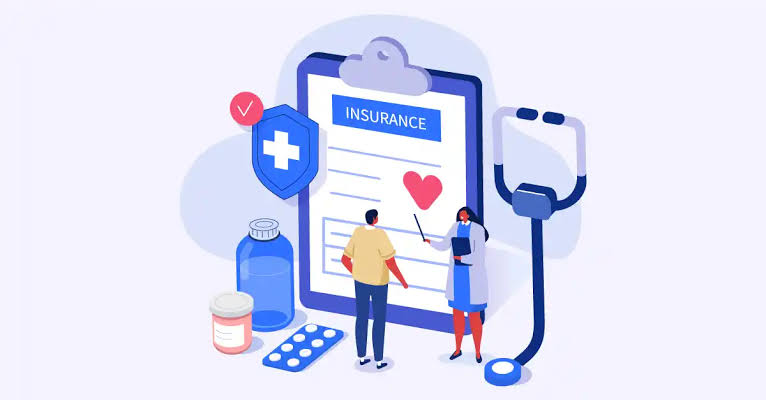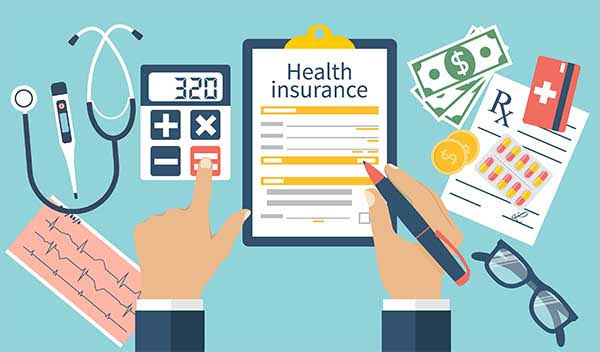Choosing Affordable Health Insurance
As single mothers, are you covered by health insurance? Are you willing to acquire affordable healthcare options? Continue reading and begin reflecting on it. This article is for single moms buying insurance.
Being a single mom is difficult. Finding health insurance for yourself and your family is even more challenging. We all know that any serious illness can drastically alter situations. Thus, to ensure you are covered for emergency and preventative care, finding the best health insurance is significant.
Choosing affordable health insurance means deciding how to save money while navigating low-cost yet effective healthcare options. The rising healthcare cost is a challenge for people, especially single moms. Health coverage and individual expectations can also challenge people to find affordable health insurance.
Saving money as a single mom should be the primary focus. It includes utilizing community resources and doing comparison shopping for health insurance. As single moms, you should navigate affordable health insurance options. By doing so, you can have lesser financial uncertainties and avoid unintentional losses. We are all aware of how quickly medical costs may increase. Paying for medical expenses out of budget can be avoided by having health insurance. Therefore, you have access to local public and private health insurance options. Continue reading if you want to discover more.
Understanding Health Insurance Basics
Are you familiar with the terminology of health insurance? Do you know the types of health insurance plans? Well, let’s understand it first to have smooth transactions and adequate health insurance planning.
A claim is a request made by a plan member to the insurance provider for payment of medical services. A payment made to maintain the status of your health insurance coverage is known as a premium. These payments, typically required every month, play a significant role in the overall cost of your healthcare plan. Before your insurance policy begins paying for eligible medical expenses, you must pay a deductible each year. One way to contribute to your deductible is by making co-payments when you see a provider. Following the payment of your deductible, you must pay coinsurance to share the cost of covered services. Usually, a percentage represents the coinsurance rate.
To address the healthcare needs of all employees or members at lower costs, a health maintenance organization (HMO) can assist you by negotiating with specific doctors, hospitals, and clinics. In contrast, a preferred provider organization (PPO) will give you lower costs if you use the doctors and other service providers in its network. Additionally, using a point-of-service plan (POS) leads you to have lower expenses. Before consulting a specialist, you must obtain a recommendation from your primary care physician. Understanding these various health insurance plans will help you get proper medical care and avoid unnecessary time.
Being a single mother requires careful money management to fulfill obligations, which include providing for your family’s medical requirements. If you have health insurance, you can be sure that the cost of care won’t affect your finances. You can also relax knowing that you’ll receive excellent medical treatment. The best present you can provide your family is to ensure they have adequate health insurance.
Assessing Your Health Insurance Needs
As a single mom, choosing affordable health insurance is good. However, you should know how to assess your present medical situation. In addition, you should better understand the variables that affect health and practical methods for gathering and interpreting data on children’s health.
As a single mom, you should expect future health expenses so that you’re prepared for unforeseen events. In this way, you can manage your finances and plan for your future medical requirements.
Considering any medical condition is essential in assessing your health insurance. Special healthcare requirements should be evaluated to ensure your health and overall well-being.
Government-Sponsored Health Insurance Programs
Medicaid
Medicaid is one of the government-funded programs that offer accessible or affordable healthcare. Low-income adults, single parents, children, pregnant women, senior citizens, and anyone with disabilities can participate in this program. Home health care, physician services, and lab and x-ray services are on the list of essential benefits. Inpatient and outpatient hospital treatment are also included. Prescription drugs, case management, physical therapy, occupational therapy, and other services are included in the list of additional benefits.
Single parents must earn less than 138% of the federal poverty level to be eligible for Medicaid. There is no open enrollment period for Medicaid, so you can apply anytime through the Medicaid office in your state or a marketplace for health insurance. You will require some documents, including evidence of age, financial information, proof of citizenship and state residency, and details of any other health insurance you may have.
Children’s Health Insurance Program (CHIP)
Another health insurance plan created specifically for single parents is the Children’s Health Insurance Program (CHIP). CHIP offers free well-child checkups. Charges for other services are likewise subject to a restriction; they are limited to 5% of a family’s annual income.
To qualify for CHIP, your child must be a US citizen, at least 19 years old, uninsured by a group plan, and within the state’s family income restrictions. These standards fall between 170% and 400% of the federal poverty threshold. In your state, you can submit CHIP applications. CHIP has been expanded in some areas to offer single mothers and fathers health insurance. Additionally, you can apply for and create an account with the Health Insurance Marketplace. If anyone in your home qualifies for CHIP, your information will be shared with your state agency. They will be in touch with you regarding enrollment.
State-Specific Health Insurance Assistance Program (SHIP)
A state-run program called SHIP uses federal funding to offer Medicare beneficiaries free local health insurance advice. With the help of SHIP services, those on low incomes, Medicare beneficiaries under 65 with impairments, and people who qualify for Medicare and Medicaid can get the care they need.
Employer-Sponsored Health Insurance
Would your family benefit more from the health insurance provided by your employer? Continue reading to learn more.
An employer-sponsored health insurance type is one in which your employer selects the insurance provider, does the research, and pays a percentage of the premiums. The three most typical forms of employer-sponsored health insurance are health reimbursement arrangements (HRAs), group health insurance, and employee stipends. Companies that employ at least two full-time staff members but fewer than 50 can sign up for a small group health insurance plan. All of the fundamental medical services mandated by the Affordable Care Act (ACA) are included in these plans. On the other hand, another employer-funded program used to pay employees for personal medical costs and personal insurance premiums is the health reimbursement arrangement (HRA). Unlike standard group health insurance, an HRA enables small firms to manage their health expenses by creating a personalized budget.
Additionally, A health stipend is given to workers under employer-sponsored health insurance. It gives employees a monthly stipend to cover their medical expenses. This is typically offered through a lifestyle spending account (LSA), a cost reimbursement, or a benefits expense card.
Whether you select employer-sponsored insurance or individual health insurance, you will still have a lot of out-of-pocket medical expenses. With a serious illness, accident, disability, or inpatient treatment, the costs of coinsurance, deductibles, and non-covered treatments can add up quickly.
The Consolidated Omnibus Budget Reconciliation Act, or COBRA, is a federal law requiring people to continue participating in group health insurance plans. This allows qualified individuals who leave their job or lose it to temporarily maintain their employer-sponsored group health insurance by covering the entire payment. COBRA insurance could be useful if you or a family member are a plan beneficiary. However, it has some limitations. Typically, your former employer won’t help with premium payments. Even though covering the entire cost out of pocket would be challenging, having health insurance is better than going without it. It usually lasts 18 months; however, depending on the situation, it may last up to 36 months. You’ll have to purchase new health insurance after that period ends.
Health Insurance Marketplaces
Customers can compare various health insurance plans on a website known as a health insurance exchange, sometimes known as a health insurance marketplace. Health insurance for individuals and families that complies with the Affordable Care Act is available through public insurance exchanges. These are the only places to get cost-sharing and premium subsidies, which reduce premiums and individual costs for millions of eligible consumers.
Who qualifies for subsidies and premium tax credits?
Premium tax credits are available to legal residents of the United States and legal immigrants who purchase insurance through the Marketplace and have incomes at least equal to 100% of the federal poverty level. To be eligible for the premium tax credits, a person must also not be a member of the military, Medicaid, the Children’s Health Insurance Program, or Medicare. You are qualified for premium tax credits based on your Modified Adjusted Gross Income.
Families and individuals who purchase health insurance through the federal or state Marketplace and have net incomes between 100 and 400 percent of the Federal Poverty Level (FPL) are eligible for subsidies. Since ACA subsidies often increase proportionately with premiums, consumers who qualify for advance tax credits under the law are typically also shielded from rising premiums. As a result, health insurance continues to be cost-effective. Your state’s government-run health insurance marketplace is where you can apply for subsidies and tax credits. You can also use private online Marketplaces that work with the government marketplace and certified agents who meet specific requirements. E-Health is a reliable source for fulfilling all of your insurance coverage requirements. You can be sure that E-Health is ready to assist in locating and maintaining the most appropriate, reasonably priced coverage for you and your family.
Private Health Insurance Options
Depending on the level of coverage insurers provide, health plans are divided into bronze, silver, gold, and platinum if you purchase through your state’s Marketplace or an insurance broker. If you’re under 30, you can also be qualified for a catastrophic high-deductible plan. How do these plans differ? Each one provides a certain sum toward the typical enrollee’s fees. Usually, the lowest-cost program has the highest deductible.
On average, the Platinum plan covers 90% of your medical expenses, with a 10% co-payment. Under the gold plan, your share of the costs is 20%, which typically pays 80% of your medical expenses. Under the Silver plan, 70% of your medical expenses are covered, with a 30% co-payment. The bronze plan covers 60% of your medical expenses with a 40% co-payment. On the other hand, catastrophic policies only pay out once you’ve reached an extremely high deductible. Even if you still need to reach your deductible, catastrophic plans must pay for your first three primary care visits and any necessary preventative treatment.
The best health insurance for a single mother will depend on her requirements and financial situation. The price of health insurance for a single mother will vary depending on the best health insurance for a single mother will depend on her requirements and financial situation. Always remember that the best plan for one mom won’t necessarily be the best for another. Most consumer-purchased individual or family plans and employer-sponsored private health insurance programs provide benefits that comply with the Affordable Care Act’s standards for minimum essential coverage.
Young adults who are single parents may find it more advantageous to remain covered under their family’s health insurance plan. According to the Affordable Care Act, young people can continue to use their parents’ health insurance plan until they are 26. Young adults with their own families who are married are included in this. However, this kind of health insurance doesn’t extend to your kids. Thus, if you are not enrolled in your parent’s health insurance plan, you must apply during the open enrollment period. Your parents can ask at their place of employment so they can plan accordingly.
Health Savings Accounts (HSAs)
A Health Savings Account, a type of tax-free savings account, can only be created by individuals with high-deductible health insurance policies. The cash may only be used to support accurate medical costs. Selecting a health savings account plan will allow you to save money tax-free for medical expenses. The account user must pay income tax plus a 20% tax penalty on the withdrawal if the money is utilized for any other purpose. It might be worthwhile, if only for the tax advantages. You can pay fewer taxes overall by directing money that you can use for medical expenses through an HSA, which is tax-free when contributions are made. Your employer will not withhold taxes from this money.
The limitation is that the only people who can open a healthcare savings account (HSA) are High-Deductible Health Plans (HDHP) members. A person is regarded as qualified if they have a qualifying HDHP, are not enrolled in Medicare, are not covered by insurance, and are not claimed as a dependent on another person’s tax return. The financial benefits of an HDHP’s lower premium and greater deductible will depend on your circumstances. They might be suitable for healthy people without recurring conditions that call for continued care.
HSA plans must be combined with a high-deductible health plan (HDHP), which offers affordable premiums in exchange for a high deductible. HSAs and HDHPs complement each other effectively since the income-tax-free money you deposit into your HSA can be used to pay your deductible for upcoming medical care. Like other investment vehicles, HSAs allow a spouse to own them tax-free if the account owner dies.
Seeking Community And Nonprofit Assistance
As a single mom, you can acquire different types of nonprofit assistance in your community. One of them is the Maternal and Child Health Block Grant. Through this grant, single mothers will have free or low-cost access to youth, child, women’s, and infant healthcare programs.
You can apply to the Partnership for Prescription Assistance Program if you want free prescription medicine. In addition, single mothers without insurance can take part in the patient programs to receive their medication for free or at a very affordable cost. You can apply for this program by using the online application form. Other assistance programs include the Vaccines for Children Program (VCP) and the Consolidated Health Centers Program (CHC). The VFC program helps children acquire enough vaccinations. Thus, single mothers can apply to enroll their kids. You can call the Centers for Disease Control and Prevention at 800-232-4636 or the Department of Health and Human Services for more information.
On the other hand, the CHC program provides funding for a wide range of primary care medical facilities across the US. For registered patients, these clinics offer free, basic medical care services. For more information, visit this link: https://singlemothersgrants.org/help-for-single-mothers-with-no-health-insurance/.
Some charities offer assistance to single mothers. One nonprofit organization offering financial support and seminars to single parents is the Single Parent Project. Other charitable organizations include The Singletons, Hope Station, Cause We Care Foundation, MAIA Moms, and Single Mothers Outreach. The organizations above aim to assist single parents across the country.
Tips For Reducing Health Insurance Costs
Healthy living and advocating for preventative treatment are important ways to lower the cost of your health insurance. Therefore, as a single mom, you should have regular checkups. By doing this, you can keep an eye on your health and check for diseases like high blood pressure and diabetes. You can also talk to your doctor about any medications or dietary supplements you are taking. If you already have a health condition, learn how to take action and start getting affordable health insurance.
Using telemedicine and virtual healthcare services helps to lower health insurance expenditures. It aids in sustaining continuity of care for patients. Through telemedicine, medical professionals and patients can stay healthy and increase access to care online. By contacting your healthcare provider online, you can get your home’s medical attention and security. Additionally, purchasing generic medications can help you save money. The Food and Drug Administration (FDA) estimates range from 20 to 70 percent less expensive. You can also select less expensive treatment alternatives to promote cost-effective healthcare services.
Avoiding Common Health Insurance Pitfalls
Given today’s high cost of living and escalating medical bills, choosing affordable health insurance is a crucial investment for people of all socioeconomic classes. However, as a single mother, you should take thorough planning measures to prevent unanticipated medical problems.
For the best possible coverage and financial stability, it is important to understand the coverage exclusions and limitations of our health insurance. Different policies may have different restrictions and exclusions, and some services are frequently not covered. Thus, you should assess your health insurance by evaluating the terms and conditions. You should also conduct extensive research before selecting a health insurance plan. Watch out for health insurance scams. It’s tricky. Reviewing the fine print and understanding the policy terms are significant factors in choosing affordable health insurance.
Re-evaluating Health Insurance Needs Annually
Why do we need to re-evaluate our health insurance annually? Does it matter? Let’s find out!
You initially selected a health insurance plan based on your requirements when signing up. You chose a plan that fits your financial situation and health status. However, your needs may have altered over the year. Thus, your health insurance should reflect those changes. As a result, re-evaluating your health insurance annually is a must.
It’s important to conduct an annual assessment and comparison. Your income, financial situation, healthcare, medical professionals, and insurance coverage are all subject to change. Thus, you can evaluate your current healthcare demands and insurance by annual assessment. Additionally, upgrading and assessing your coverage once a year can help you keep up with better offers and provisions.
Conclusion
Saving money means choosing affordable health insurance. For single moms, you should assess your health insurance needs and re-evaluate them annually. Set a comprehensive goal and find ways to reduce health insurance costs. As a single mom, you should stay informed about health insurance. You can select from a variety of private health insurance plans as well as government- and employer-sponsored health insurance plans. Additionally, look into local assistance initiatives run by charities and other nonprofits. You can also search for all the individual and family health insurance plans in your region, or you can get started immediately by calling or chatting with a professional insurance representative!





